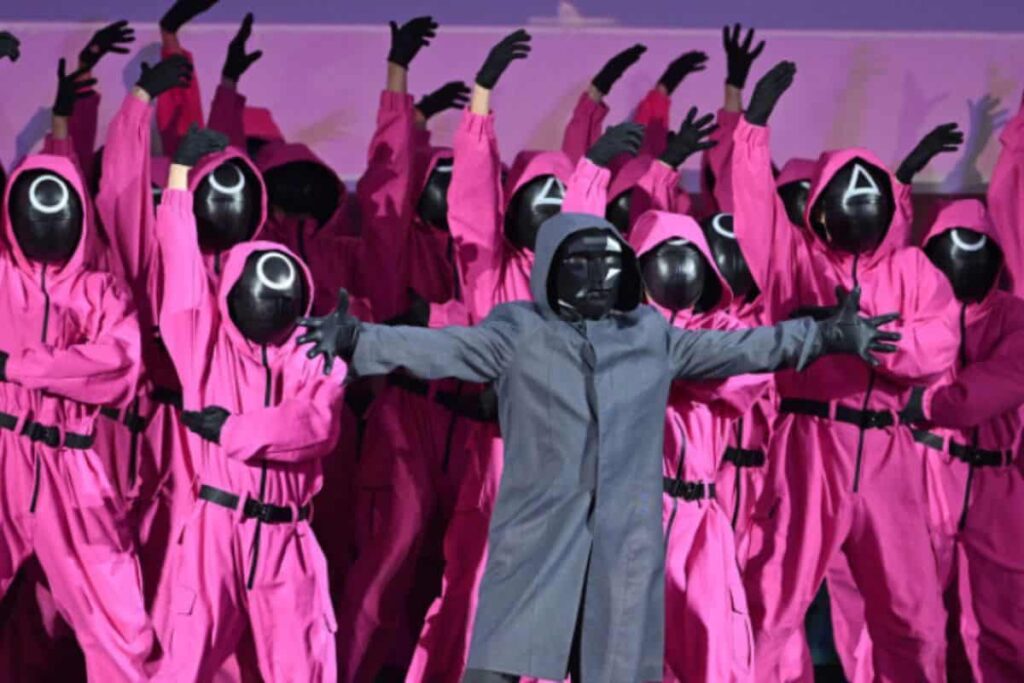The second season of “Squid Game” was released on Thursday, December 26th.
The riot that inspired one of Netflix's most successful shows has all the hallmarks of a TV drama: factories turned into battlefields, riot police armed with Tasers, activists who spent 100 days atop chimneys. .
The second season will be released this month squid gamea dystopian vision of South Korea where desperate people compete in deadly versions of traditional children's games for huge prizes.
However, although the show itself is fiction, director and screenwriter Hwang Dong-hyuk said that the experiences of the main character, Ki-hoon, a fired worker, were inspired by the violent 2009 SsangYong strike. Ta.
“I wanted to show that in the world we live in today, any ordinary middle-class person can fall to the bottom of the economic ladder overnight,” he said.
In May 2009, struggling auto giant Ssangyong, which was acquired by a consortium of banks and private investors, announced it would lay off more than 2,600 people, nearly 40% of its workforce.
That was the beginning of a factory occupation and a 77-day strike that ended in clashes between strikers armed with slingshots and steel pipes and riot police brandishing rubber bullets and Tasers.
Many union members suffered severe violence and some were imprisoned.
Also read: Banshee: Ultra-violent but addictive television
“Many people lost their lives'': The conflict did not end there.
Five years later, labor union leader Lee Chang-geun staged a 100-day sit-in atop the factory's chimney to protest a ruling against strikers in SsangYong's favor.
His supporters fed him food from a basket attached to a rope, and he endured visions of his tent rope turning into a writhing snake.
Some who experienced the unrest had a hard time discussing it. squid game Lee told AFP it was because of the trauma they had endured.
The impact of the strike was further exacerbated by a prolonged legal battle, placing a huge financial and psychological burden on workers and their families, resulting in approximately 30 deaths from suicide and stress-related issues, Lee said. said.
“Many people lost their lives. People had to suffer for too long,” he said.
He vividly remembers police helicopters circling overhead, creating fierce winds that tore the raincoats of the workers.
Lee said she felt like she couldn't give up.
“We were seen as incompetent breadwinners and insane, outdated labor activists,” he says.
“The police continued to beat us even after we lost consciousness. This happened at our workplace and was broadcast for many people to see.”
Lee said he was moved by scenes from the first season. squid game Ki-hoon struggles not to betray his fellow competitors.
But he hoped the show had been a catalyst for real change for workers in a country marked by economic inequality, strained labor relations and deeply polarized politics.
“It is unfortunate that despite being widely discussed and consumed, we are not directing these conversations towards more beneficial outcomes,” he said.
ALSO READ: 'Half a million people are now rich': Hungani Ndlovu and Dimakatso Kalisa win Tropica Islands of Treasure Zanzibar S11
“Shadow of state violence”
The success of “Squid Game'' in 2021 left him feeling “emptiness and regret.''
“At the time, I felt that the story of the SsangYong workers was being degraded into a series of products,” Lee told AFP.
The streaming platform's most-watched series of all time, “Squid Game” is part of the “Korean wave” alongside Oscar-winning films like “Parasite” and K-pop stars, and is part of the country's global cultural powerhouse. It is seen as embodying the rise to . As BTS.
But the second season comes as Asian democracies are embroiled in their worst political turmoil in decades, sparked by conservative President Yoon Seok-yeol's failed attempt to impose martial law this month. begins.
Yun was subsequently impeached and suspended pending a ruling by the Constitutional Court.
This declaration of martial law risked sending the Korean wave, including about 3,000 people involved in the film industry, into the “abyss.'' parasite Director Bong Joon-ho wrote the following in response to Yoon's shocking decision.
Vladimir Tikhonov, a professor of Korean studies at the University of Oslo, told AFP that some of South Korea's most successful cultural products are those that highlight the violence of the state and capitalism.
“This is a remarkable and interesting phenomenon. We still live in the shadow of state violence, and this state violence is a recurring theme in very successful cultural works.”
Read now: 22nd Durban Jazz Festival postponed

